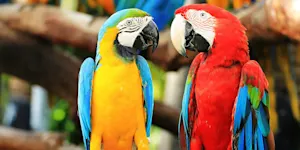What Makes This Word Tick
The word "cryptic" buzzes with mystery and enigma. Often used to describe a statement or message that is not immediately clear, it challenges our minds to dig a little deeper. It's dazzlingly vague, like a smudged treasure map leading to an unexpected revelation.
If Cryptic Were a Person…
Imagine a person who wears oversized hats and sunglasses indoors. They speak in riddles, never fully answering questions but somehow leaving you more intrigued than before. The kind you'd invite to a dinner party just to add a touch of mystique.
How This Word Has Changed Over Time
"Cryptic" has retained its shadowy allure over the centuries. While initially linked more closely to codes and puzzles, its use has broadened to describe anything that's puzzling—be it a remark, a look, or even the plot of an avant-garde film.
Old Sayings and Proverbs That Use Cryptic
There isn't a famous adage that directly uses "cryptic," but sayings like "reading between the lines" tap into the same curiosity that fuels cryptic sentiments. It’s all about figuring out what's unsaid or unseen.
Surprising Facts About Cryptic
Did you know that cryptic crosswords are a world of their own? Unlike regular crosswords, they involve unraveling clues that play dramatically with language, ensuring nothing is what it seems. Only the truly adventurous should dare to attempt them.
Out and About With This Word
In everyday conversation, "cryptic" might pop up when someone is being particularly enigmatic or when a friend sends a text message that's puzzlingly terse. Think of it as a verbal shrug wrapped in mystery.
Pop Culture Moments Where Cryptic Was Used
From cryptic teasers in movie trailers to the lyrics of a Bob Dylan song, this word has definitely made its mark. Anytime a plot unfolds with a twist, you can bet "cryptic" is lurking in the shadows, nodding with approval.
The Word in Literature
"Cryptic" fits comfortably in detective novels and ghost stories. It's the air of mystery or the unknown that seasoned detectives must penetrate to solve a case—and it might just describe the author's own style if they're fond of playing games with the reader.
Moments in History with Cryptic
The Cold War era was ripe with cryptic communications, as spy networks operated under layers of secrecy and intrigue. This word perfectly encapsulates the whispered messages and covert operations of that tense time.
This Word Around the World
In different languages, "cryptic" takes on diverse guises but often maintains its essence of intrigue. In French, "cryptique" sounds almost the same, while in Japanese, you might encounter "nazo," hinting at mystery and complexity.
Where Does It Come From?
The word "cryptic" traces back to the Greek "kryptos," meaning hidden. It's been a favorite of those who like their language served with a side of mystery since at least the early 1600s.
How People Misuse This Word
Some folks mistakenly use "cryptic" when they mean vague. While a cryptic message is indeed vague, it also has an air of intentional concealment, often with a hidden meaning waiting to be uncovered.
Words It’s Often Confused With
Vague: Lacking clarity, but without the mysterious undertone of "cryptic."
Arcane: Requires special knowledge to understand, similar yet more esoteric.
Obscure: Unclear or hidden, though not necessarily with intent or mystery.
Additional Synonyms and Antonyms
Synonyms include enigmatic, mysterious, and puzzling. Antonyms would be clear, straightforward, or explicit—anything that leaves no room for confusion.
Want to Try It Out in a Sentence?
"When I received the cryptic note, I couldn't decide if it was a clever riddle or some kind of practical joke."
















